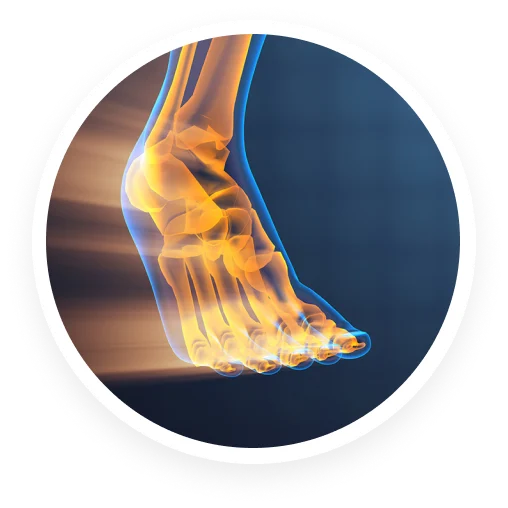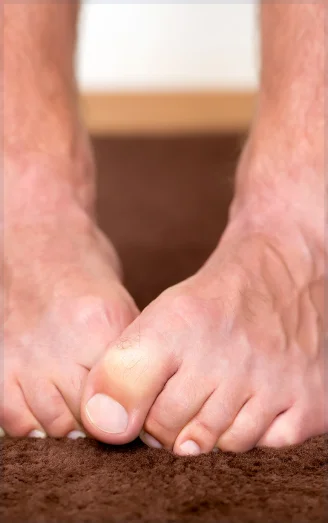
Neuropathy
Neuropathy is a general term used to describe conditions that affect the nerves.
Allen Finney
Review
Young ladies behind the counter were nice and professional. Dr. Khan was and is awesome. You felt he really cared which I have not felt in the 2 years I've been injured. Only reason I did not give it 5 stars was the hard time I had finding it.
Allen Finney
Review
Young ladies behind the counter were nice and professional. Dr. Khan was and is awesome. You felt he really cared which I have not felt in the 2 years I've been injured. Only reason I did not give it 5 stars was the hard time I had finding it.
charles griffin
Review
Have been doing a wonderful job with help with my nerve pain, listen to me, and my request no to be put on pain killers but to help find the problem, always return calls so glad is was referred to them.
Stacey Mejia
Review
Awesome staff Dr. Kahn is a really good Doctor he listens and is a helping man!! I appreciate all of your guys work you do for your patients!! You even call to give reminder the day before your appointment! Again that's so awesome!!
Forrest Hammer
Review
NOTHING BUT THE BEST. ABLE TO WALK. ABLE TO PERFORM TASKS THAT I COULDN'T FOR A LONG TIME, LIKE DAILY WALKING, BENDING OVER, CARRYING GROCERIES AND ENJOYING A MOVIE AT THE CINEMA. THANK YOU DR. ASIM KAHN.
Jeanne Neathery
Review
Dr RYklin is amazing. He treats each patient as if you’re his only one. I’ve been seeing him for 7yrs due to a neck injury. He definitely finds what pain management meets your individual needs. The practitioners are amazing as well!!!!
Marty Klopper
Review
Pain Dr office. Staff is friendly and professional. Lots of paper work to be filled out. Office was clean and neat. Masks on Staff at all times and required for patients to enter. Will be going back for follow-up appointments.
Kim LindL
Review
The staff is very pleasant and Dr. Khan is very good with a needle I've been getting epidurals and shots in my foot and lower back for about 4 years now, he is very good and I would never go to another place
Angel Bussert
Review
The doctor actually listens. I have been a patient for years and love the staff and doctors. I've been to all the locations the country club one is always super busy queen creek location is never packed so I go there.
Guy Romero Jr
Review
Every Staff personnel are very professional, courteous and patient respectful in caring for each medical problem. We live out in Laveen, but finding good patient care are hard to find, Truly Blessed Guy E Romero
John Crosby
Review
They do a great job in today's challenging health care system. Great Nurse Practitioners who work hard. Great support staff. Doctors are expert practitioners. Stable practice. I have over five years personal experience with them.
Stacey Mejia
Review
Awesome staff Dr. Kahn is a really good Doctor he listens and is a helping man!! I appreciate all of your guys work you do for your patients!! You even call to give reminder the day before your appointment! Again that's so awesome!!
Kim LindL
Review
The staff is very pleasant and Dr. Khan is very good with a needle I've been getting epidurals and shots in my foot and lower back for about 4 years now, he is very good and I would never go to another place
Guy Romero Jr
Review
Every Staff personnel are very professional, courteous and patient respectful in caring for each medical problem. We live out in Laveen, but finding good patient care are hard to find, Truly Blessed Guy E Romero
Angel Bussert
Review
The doctor actually listens. I have been a patient for years and love the staff and doctors. I've been to all the locations the country club one is always super busy queen creek location is never packed so I go there.
Forrest Hammer
Review
NOTHING BUT THE BEST. ABLE TO WALK. ABLE TO PERFORM TASKS THAT I COULDN'T FOR A LONG TIME, LIKE DAILY WALKING, BENDING OVER, CARRYING GROCERIES AND ENJOYING A MOVIE AT THE CINEMA. THANK YOU DR. ASIM KAHN.
Jeanne Neathery
Review
Dr RYklin is amazing. He treats each patient as if you’re his only one. I’ve been seeing him for 7yrs due to a neck injury. He definitely finds what pain management meets your individual needs. The practitioners are amazing as well!!!!
Marty Klopper
Review
Pain Dr office. Staff is friendly and professional. Lots of paper work to be filled out. Office was clean and neat. Masks on Staff at all times and required for patients to enter. Will be going back for follow-up appointments.
John Crosby
Review
They do a great job in today's challenging health care system. Great Nurse Practitioners who work hard. Great support staff. Doctors are expert practitioners. Stable practice. I have over five years personal experience with them.
Carol Gravatt Davidson
Review
Absolutely the best place I have been too...so many doctors and always just prescribed pain pills for over 10 years. There is hope, after starting injections I feel so much better. I know I'm in the right place.
Tim Tuzon
Review
Been with Kahn for over a year and wouldn't want to be anywhere else. He is not a pharmacy! He solves the issues instead of hiding them with tons of drugs. Have had multiple procedures to correct the problems.
Brooke Keifer
Review
I was nervous when I brought my mom into the office. They are clearly a very busy office, but the front staff was kind, and the doctor was very confident in a treatment plan. Overall my Mom was very pleased with her visit.
Kari Lynn Plo
Review
I love Dr Ryklin and his assistant Liza! They've always been super good to me and very sympathetic to all my needs! They've done everything they can to make me comfortable and to help me with my pain! I'd refer anyone to them!
Lacey Smithson
Review
This office keeps getting better every time I go. Staff is friendly, doctors are very well educated and good at what they do. And they have helped decrease my mom's back pain by 80%! Everyone with pain should go to this place!
Katty Miller
Review
Dr. Khan is truly carrying, understanding and the VERY BEST AT ADMINISTRATING SGB INJECTIONS!!! I look forward to driving from California to be seen by him. I just can't say enough. Thank you Dr. Khan.
Britt Montoya
Review
Great place. Dr Khan is an awesome Dr and goes above and beyond to help you. Meghan is a wonderful P.A. as well. It says so much to have a Dr that truly cares about your outcome of your procedures. This is a goodhearted Dr
Julie Kierzek (Julz)
Review
Love them all. Dr Ryklin is so helpful and understanding. He takes helping people seriously & I'm extremely grateful for everything he & the PA's & MA's have done for me. Dr Ryklin has gone above & beyond for me.
Delicia N
Review
The team here are genuinely the most helpful providers I have ever had. I went through my worst lupus flare ever last year and mentally did not think I would make it. They truly saved me and made me feel like I could ask for help!
Caroline Copeland
Review
We are Dr. Ryklin's patients. He is an amazing pain management physician. All of the treatments that we receive work extraordinarily well. His entire staff, from front to back, are exceptional. Patient care is really the specialty here.
Eva Linda Hemmerling
Review
I'm a patient Dr. Khan/ NP Liza. I find Doc Liza caring always interested in me as a whole. Body/Mind/soul. Find comfort in her. Staff Dustin,Amanda are tops also. I highly recommend AZ Spine Institute. E.L.H.
Charles Eberhardt
Review
I have been to the Vineyard location 12 times and this is the best Doctor's office I have ever been to. The staff is by far the friendliest and most caring staff around. I actually look forward to my visits. Thanks for everything.
Becky Kirby
Review
For the last 12 years, Arizona pain and spine in Queen Creek with Lisa, has taken care of my pain issues. Without her, I wouldn't be able to manage the excruciating pain I have had after my time in the service
Brian Evans
Review
Dr Kahn is wonderful. He is a master of his craft. If it wasn’t for him, I’m not sure I would be able to function. He always listens, and really cares about his patients. I am so grateful for him and his staff.

What is neuropathy?
Neuropathy refers to all kinds of malfunctions or diseases that affect the nerves regardless of their location in the body, and their causes. This condition, however, is classified according to the location of the nerves, its type, and the underlying cause. The common types are the following: peripheral, autonomic, cranial, and focal neuropathy.
- Peripheral neuropathy is a type of this condition that affects the nerves surrounding or located outside the spinal cord and the brain.
- Autonomic neuropathy affects the nerves found in the involuntary nervous system.
- Cranial neuropathy refers to the damaged twelve cranial nerves—these are nerves that directly exit from the brain.
- Focal neuropathy is used to refer to a nerve problem that only affects a particular area or part of the body.
Regardless of the type, people with this condition experience one thing in common: neuropathy pain.
What are the symptoms of neuropathy?
There are no specific symptoms of neuropathy. This is because the symptoms depend on the location and type of nerves affected by the condition. So in order for us to determine the symptoms, it is important that we understand the main classifications of nerves in the body, such as the following: motor nerves (which control muscle movement), sensory nerves (which receive sensations like touch, pain, and temperature) and autonomic nerves (which control functions like heart rate, blood pressure, and digestion).
But there are signs and symptoms that are common among the various types of this condition. Aside from the neuropathy pain, there are other symptoms that a patient may experience. They are as follows:
- Sharp, burning, freezing, throbbing, or jabbing pain.
- Numbness, tingling, or prickling sensation.
- Muscle weakness
- Paralysis (if motor nerves are affected)
- Highly sensitive to touch
- Lack of coordination
If autonomic nerves are damaged or affected, additional symptoms may be felt, such as the following:
- Bladder or digestive problems
- Altered sweating
- Blood pressure changes
- Heat intolerance
- Lightheadedness or dizziness
What causes neuropathy?
Understanding what causes neuropathy helps in determining the appropriate treatments and therapies needed to alleviate and manage the symptoms. Aside from this, it is also important that we understand the possible causes of the condition. The most common causes include the following:
- Infection
- Vitamin deficiencies
- Trauma or injury
- Tumor
- Post-herpetic neuralgia
- Amyloidosis
- Diabetes
- Uremia
- Genetic disorders
How is neuropathy treated?
Treatment options for neuropathy include medications, therapies, and invasive procedures such as surgery.
Medications are the most common treatment for neuropathy. Over-the-counter pain relievers such as NSAIDs can provide relief for pain and other mild symptoms. However, for severe pain, prescription pain relievers may be necessary. Anti-seizure medications may also be taken to relieve nerve pain. Other medication options include topical treatments for mild and short-term pain, and antidepressants.
There are also therapies that help ease the symptoms of neuropathy. The common procedures for nerve pain include transcutaneous electrical nerve stimulation (TENS), plasma exchange, and physical therapy. In severe cases of neuropathy, injections and surgery may be necessary.
AZ Pain and Spine Institute
Neuropathy Treatments
Here at Arizona Pain and Spine Institute, we improve our patients’ quality of life by alleviating and managing their pain. Some of our Neuropathy treatments include:

Why choose AZ Pain and Spine Institute to treat your Neuropathy?
We have a team of medical practitioners, pain management doctors, and staff who are experts on pain management, including Neuropathy. We use state-of-the-art technology and effective approaches in achieving our mission. We care about your well-being and are committed to making your life pain-free.
